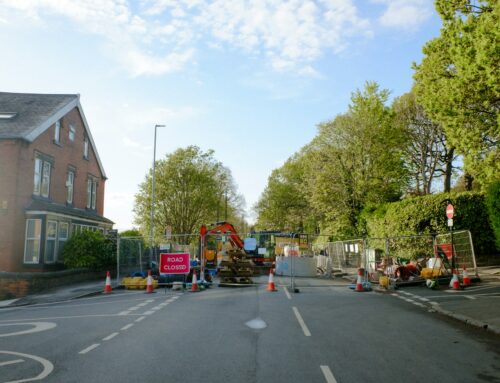It will have been of interest to many transport consultants and their clients recently that the UK Government has finally set out its Modern Industrial Strategy.
The publication of the industrial strategy – outlining ministers’ proposed 10-year plan for the UK economy – follows the closure of the Invest 2035 consultation on 25th November last year.
The Sir Keir Starmer-led administration has stated that the industrial strategy “aims to deliver the certainty and stability businesses need to invest in the high-growth sectors and drive long-term economic growth.”
What are the eight sectors underpinning the Modern Industrial Strategy?
The Government has pinpointed eight sectors that it believes offer the greatest growth potential over the coming decade, in addition to having “a critical role to play in supporting economic security and resilience, net zero and regional growth.”
Those sectors are:
- Advanced manufacturing
- Creative industries
- Clean energy industries
- Digital and technologies
- Professional and business services
- Life sciences
- Financial services
- Defence
Various announcements have been made with possible impacts on transport
Some of the announcements that have been made with the industrial strategy’s publication include:
- Gigafactories, laboratories, and data centres being permitted to “opt in” to be designated as Nationally Significant Infrastructure Projects
- The average pre-application period for major infrastructure projects being brought down from two years to 12 months
- A call for evidence being launched on the expansion of permitted development rights
- Processes for judicial reviews being streamlined
- Artificial intelligence (AI) growth zones being established
- A 13-week target being implemented for ministerial decisions on called-in applications
- A Nature Restoration Fund being put in place, subject to the Planning and Infrastructure Bill being passed into law
- Funding being provided for 300 new planning officers
- Long-term certainty being provided on the UK’s infrastructure requirements and delivery, through a 10-Year Infrastructure Strategy and a pipeline of infrastructure projects.
How have transport professionals responded to the Modern Industrial Strategy?
Following the industrial strategy’s publication, the Chartered Institution of Highways and Transportation (CIHT) stated that it welcomed the “focus on skills, having highlighted the engineering skills shortage in our response to the strategy consultation.”
The organisation expressed its support for “measures to address skills shortages in the UK, such as the Skills Mission Fund and creation of Technical Excellence Colleges.”
With regard specifically to highways and transportation sector announcements, the strategy largely echoed the recently published 10-Year Infrastructure Strategy.
Announcements previously made from that 10-year strategy included – but were not limited to – £24 billion of capital funding being provided between 2026-27 and 2029-30 for the maintenance and improvement of motorways and local roads around the UK, as well as the delivery of major rail projects like the TransPennine Route Upgrade, East-West Rail, and HS2.
In conclusion, CIHT said that it “looks forward to continuing to work with HM Treasury, the Department for Transport, and engaging with the Department for Business and Trade” on the implementation and delivery of both strategies.
Work alongside our transport consultants to unlock the potential of your projects
Our transport consultants are well-placed to help realise the success of your projects in this sector. To learn more about the guidance and expertise we can provide, please enquire today to your nearest Transport Planning Associates (TPA) office.





